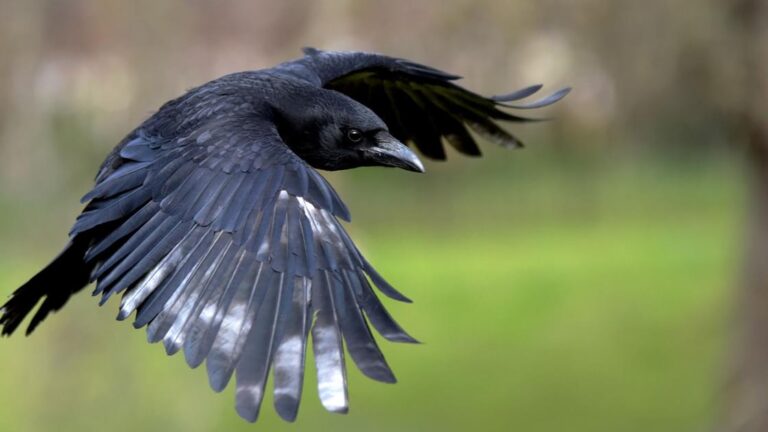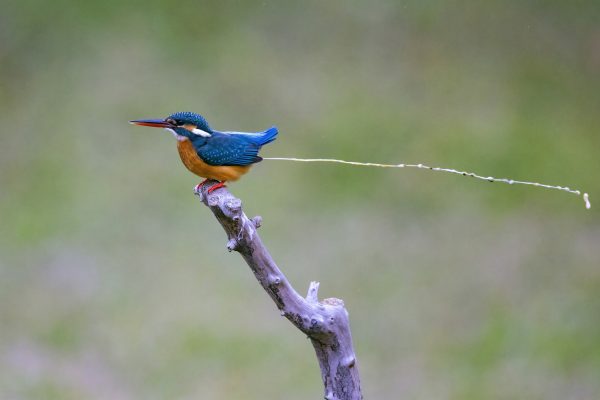With the exception of Antarctica, over 40 species of crows can be found worldwide. Most people are familiar with them. Their remarkable intelligence and ability to adapt to a wide variety of food sources are the reasons behind their success.
Crows are a source of anxiety for many backyard bird watchers, particularly during the spring and summer when their favorite songbirds are nesting. Do crows, however, truly consume other birds? Do they pose a significant risk?
Crows consume a wide variety of birds and their eggs, from big Osprey eggs to tiny sparrow eggs! Crows do not tend to specialize in any particular kind of prey; instead, they are usually alert to any opportunity to feed and will take any bird that they can safely catch and subdue.
Continue reading to find out more about the kinds of birds crows eat, how they catch them, and whether or not they have a significant effect on bird populations.
Typical Bird Types That Cro ws Consume
Crows would eat most species of birds if they had the opportunity. Crows will typically eat any kind of prey animal they can capture, subdue, and ultimately kill. For instance, it has been observed that American Crows and Hooded Crows consume the adults and/or nestlings of the following bird species:
Hummingbirds
US Robins, House Sparrows, Starlings, Pigeons, and Lapwings
How Birds Are Captured by Crows
Although crows are capable of capturing birds by pursuing them in midair, their success rate in hunting juvenile birds such as hatchlings, nestlings, and fledglings is much higher. For these opportunistic omnivores, sick, injured, trapped, incubating, or dead birds also make easier targets.
Crows Eating Eggs of Birds
Crows are not as well-known for catching live adults as they are for stealing the eggs of other birds. Crows use eggs as a major seasonal food source in some areas, particularly in areas where large colonies of birds nest nearby.
To discover how crows locate and gather eggs, keep reading.
How Crows Locate Eggs
When birds build their nests in open platforms or cups, especially when they are visible and easily accessible like ledges, tree tops, cliffs, or the ground, crows are well adapted to steal their eggs.
These astute birds will prey on larger birds’ eggs while their parents switch up the incubation process. They will also exploit nesting birds that are scared off by other predators. But when crows approach, smaller birds, like pigeons and doves, usually leave the nest, giving the crow an easy meal.
Usually, crows would rather take the eggs and hide them or eat them somewhere else. In this manner, the parents are less likely to ambush them, and they might come back to gather all the eggs and eat them in peace. They will conceal their prize in places where they are hidden from competitors, such as other crows, or among dense vegetation.

What Kind of Birds’ Eggs Do Crows Eat?
Crows will consume any kind of bird’s egg that they can locate and securely gather. African Pied Crows have been known to smash Ostrich eggs with stones they drop from the sky! Let’s examine a few instances of the typical target species they go after:
Pigeons and doves, domestic and feral
A variety of accessible nesting small- and medium-sized songbirds
Shorebirds and seabirds that nest on the ground, such as terns and lovers
Seabirds that nest on cliffs, such as guillemots and cormorants
Herons, ducks, and other wildfowl
Domestic Quail and Chickens
Eggs from vultures and eagles are also susceptible.
Contextual Elements
Crows will consume whatever food source is most accessible to them, but they won’t turn down a meal that is high in protein. These birds frequently consume the eggs, young, and adults of various bird species, but why do they do this?
Season
Crows that have territories along roadsides or in urban areas may find dead or injured birds by the side of the road to be an easy meal source. Throughout the year, adult birds provide a potential food source for crows.
Since most birds build their nests in the spring and summer, hungry crows have a perfect but transient source of food. Their eggs and nestlings are not only at risk but clumsy fledglings can also be easily consumed by cunning crows.
Residence
Hunting other birds and their eggs is best done in certain types of habitats. Seabird colonies may yield rich rewards for crows living near sea cliffs, and lakes and ponds serve as a draw for migrating ducks looking to nest.
The location and accessibility of the Nest
To find eggs and chicks to eat, crows must find nests. It is generally simple to locate and gain access to nests in open spaces and other exposed locations.
Animal species
Though some species are more likely than others to hunt birds, most corvid species will consume other birds as well as their young. This behavior has been observed in the following species of crows:
Hooded Crow Carrion Crow
American Crow
Fish Crow in Northwestern USA
Crows as Chaotic Providers
Crows are highly adaptive and intelligent. They are not evil creatures that devour birds; rather, they depend on a variety of food sources to live and raise their own offspring. Crows naturally consume birds and their eggs, but they seldom use them as their main meal source.
Big Songbirds
Crows’ anatomy reflects that they are essentially songbirds. They just lack the equipment necessary to hunt birds as skillfully as real birds of prey.
Think about the expert hunters of the bird kingdom. While falcons in the Falco genus use sheer speed and power to catch their prey, accipiter hawks, such as the Sharp-shinned and Cooper’s Hawks in America and the Sparrowhawk in the United Kingdom, use stealth and agility.
Notably, both groups have large talons and sharp, hooked bills to catch, kill, and feed on other birds. Their specialized anatomy allows them to hunt by flight. Crows are capable of hunting adult, live birds, but if they concentrated only on this food source, they would likely go hungry.
Effects on Environmental Systems
Crows undoubtedly consume other birds at every stage of their lives, from eggs to adults. However, it would be premature for bird enthusiasts to attribute songbird declines to these birds. Crows are a component of suburban and urban ecology as well as natural ecosystems.
It’s crucial to keep in mind that there are other bird predators besides crows, so eliminating corvids wouldn’t necessarily decrease predation—rather, it would increase the amount of food available to other predator species like foxes, rats, domestic cats, and raccoons.
When Do Crows Pose a Risk?
Although the number of common backyard birds is not greatly affected by crow nest predation, it can pose a threat to threatened bird species, such as the endangered California Least Tern, which is already under threat from other sources.
FAQs
A crow destroying a pigeon?
Although crows are capable of killing pigeons, they usually capture sick or injured birds. But since pigeons frequently nest in relatively open and accessible locations, their eggs and chicks—known as squabs—make them easy prey.
Is it appropriate to stop crows from consuming other birds?
Even though it can be annoying to witness crows breaking into songbird nests, it’s usually best to let nature have its way. If you have any concerns about the safety of any endangered or threatened species, get in touch with your local wildlife authority.
Are crows eaten by other birds?
Although crows are known to consume birds and their young, other birds can also harm these opportunistic omnivores. Adult crows, their eggs, and their chicks will serve as food for large owls, eagles, Goshawks, and other larger hawks.




![38 Birds that Lay Speckled Eggs [Detailed Guide]](https://birdsology.com/wp-content/uploads/2023/11/8341a329b95e3bac01e26570049ce1eb-600x400.jpg)
![30 Amazing Purple Birds [Images + IDs]](https://birdsology.com/wp-content/uploads/2023/02/43-600x400.jpg)
